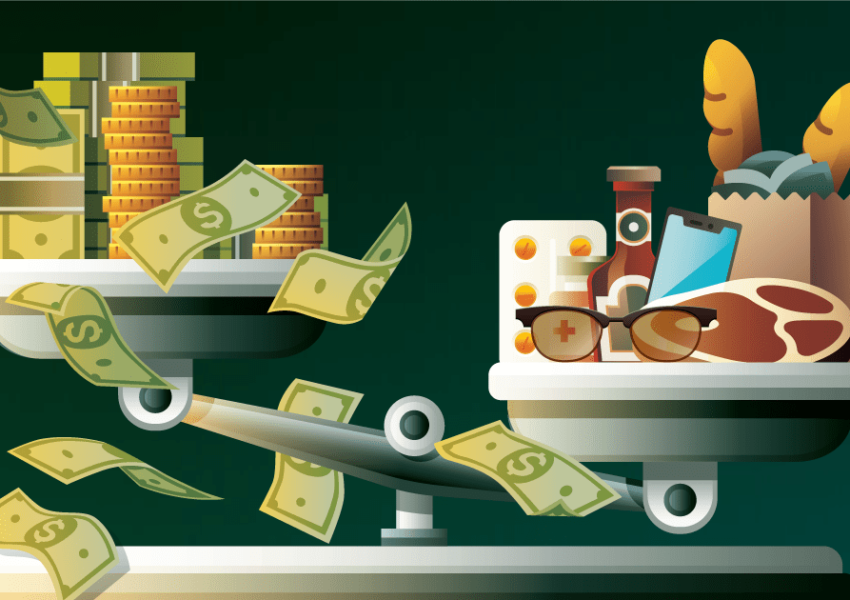Inflation is rising as we continue trekking through this pandemic. In 2021, the US Consumer Price Index rose nearly 7%. With the Federal Reserve aiming to keep it at 2% or less each year, why have rates skyrocketed this year? To answer this question, first we need to understand what inflation is and why it occurs.
Inflation is an increase in the price of goods or services due to weakening currency caused by different economic triggers. These triggers can be things like surge in product demand, production cost increases, supply chain breakdowns, or changes in the housing market. There have been two major theories that have been presented regarding why inflation occurs. The first is the cost-push theory which explains that higher costs of services or production of goods raise overall prices. The second is demand-pull theory which suggests that when demand for goods outpaces the availability of them, it raises the prices.
Both of these theories work to explain why it is rising so high in these times of the pandemic. With mass stay-at-home orders being enforced early in 2020, many production jobs were lost which lessened the availability of products and resulted in rising prices. New safety and sanitary procedures added more fees for businesses to pay which raised the cost for production of goods. This explains why rates are rising, and in fact America is experiencing the biggest jump in more than 30 years.
The History of Inflation
This is not the first time this country has experienced a large jump in inflation. After the Revolutionary War, America experienced the biggest jump in it’s entire history with inflation rates at nearly 30%. In the 1970’s the Great Stagflation saw inflation rise to over 14%. So while the rise of 7% we are experiencing today may seem daunting, we have experienced worse economic strife in the past.
Something we may have to prepare for is the possibility of a recession. The United States has experienced more than 19 recessions in the past 100 years, notably The Great Recession which occurred in 2008 due to policies trying to reduce inflation. The U.S has been known to enact strategies to control inflation, but as seen with The Great Recession, these strategies can have unintended consequences.
Inflation Trends
So what can we expect from these ongoing inflation trends? Well on a positive note, we can expect lower unemployment rates and higher wages. In 2021 unemployment dropped to 4% and the average hourly wage rose 5%. Unfortunately, we can also expect lower savings rates, increased interest rates, and overall higher costs of living. As we’ve seen in the past, inflation is inevitable, so what can you do to prepare?
Investing your money into rental properties and commodities like industrial metals have a great ROI percentage and may be a good way to prepare for rising cost of living. Consider continuing your education, as 30 million Americans could be earning 70% more with a college degree.

